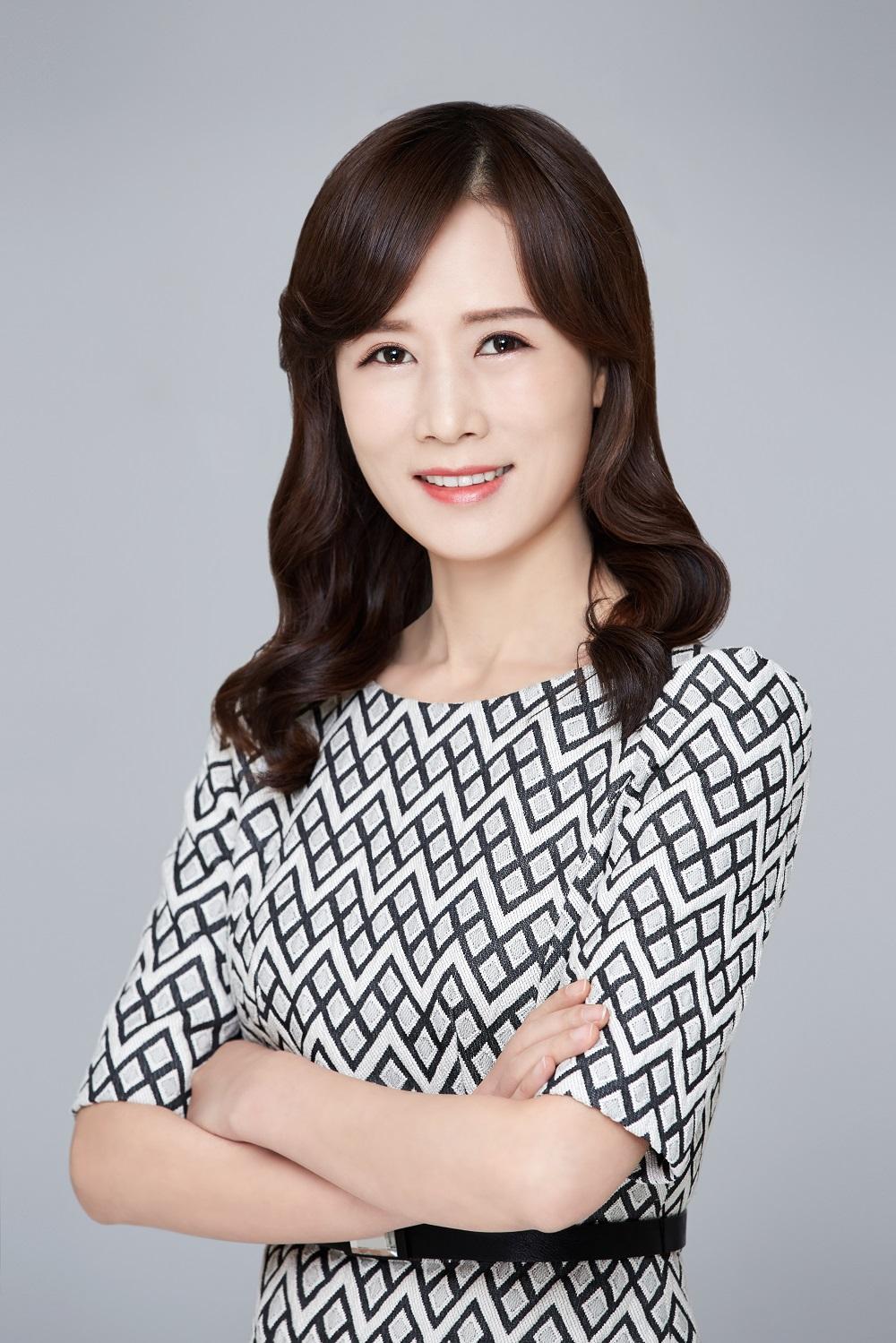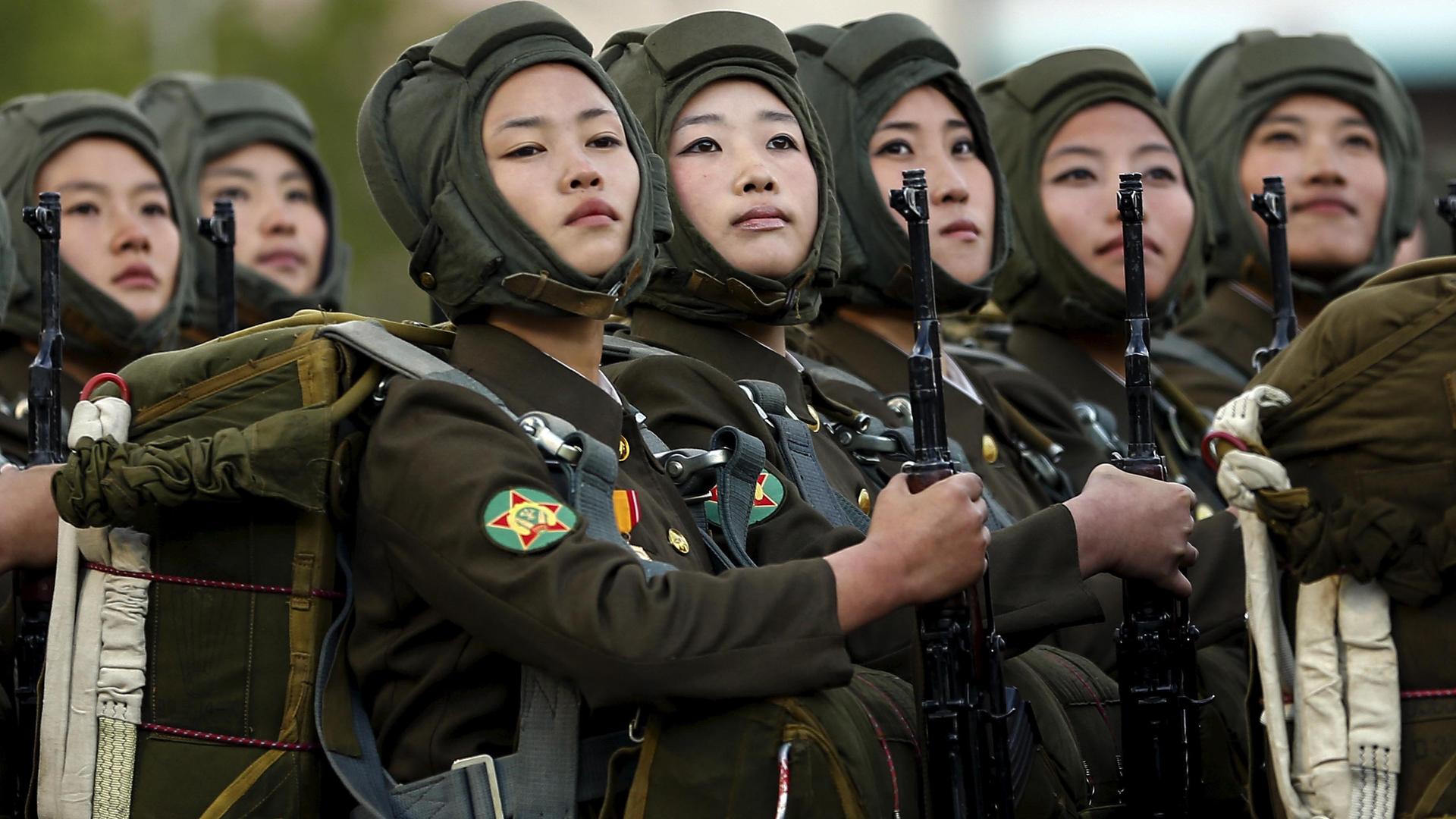North Korean soldiers look on during the parade celebrating the anniversary of the founding of the ruling Workers' Party of Korea, in Pyongyang, on Oct. 10, 2015.
Lee So-yeon once reviled the Americans with an almost religious fervor.
She didn’t have much of a choice. Lee was a sergeant in North Korea’s army. All-consuming hatred of the imperial Yankees was a job requirement. “They taught us that Americans are jackals, devouring all other creatures. Americans are also vampires,” Lee says. “Oh, and barbarians, too.”
Those were the days when Lee, like most in North Korea, was quarantined against information from the outside world. She defected from her isolated homeland in 2008 and ultimately became a citizen of South Korea, one of the most technologically advanced societies on the planet.
Lee, now 41, is a woman with a unique vantage point.

Related: Who is the 'Pink Lady' who anchors North Korea's most important TV broadcasts?
But Lee knows about the world behind the bombast — particularly when it comes to the mindset among the rank and file backing this army, the fourth-largest in the world. For roughly one decade until 2001, she was a signals specialist for the Korean People’s Army, specifically its Fourth Army Corps presiding over southwestern terrain along the Demilitarized Zone.
Lee is now working against the regime she once served. She is the president of the New Korea Women’s Union, an organization of female defectors devoted to exposing North Korean abuses against women.
We asked her for insight into officers’ thinking, life on a North Korean army camp and why she recently decided that President Donald Trump is “the man.”
The World sat down with Lee during a reporting trip in South Korea in late August.
On her role in the North Korean army
Lee belonged to an all-female division of the military based in South Hwanghae Province — an area in western North Korea between Seoul and Pyongyang. Her job was to relay coordinates sent from front-line soldiers to officers operating artillery pointed at South Korea.
“I was in charge of these cannons,” Lee says. “So if war broke out, female soldiers would go into South Korea, select targets and I would guide our cannons to hit these coordinates.”
Lee joined the army in the early 1990s, she says, to become a low-ranking member of the ruling party. This was a stridently socialist era in which most food and necessities were rationed by the state. The best rations, of course, went to members of the Korean Worker’s Party, which oversees the military.
“I was just trying to improve my status,” Lee says.
On her former camp
“I slept in a female barracks with 30 other women. We all slept on bunk beds. Each of us had a little cabinet with photos of [North Korea’s founder] Kim Il-sung and [his now deceased heir] Kim Jong-il on top,” she says.
When Lee first arrived at the camp, she stepped into the mess hall and saw an expansive menu posted up on the wall. “It was brilliant,” she says. “Meat and tofu and those little rice cakes — and it changed throughout the week. I thought, ‘Oh, this is Thanksgiving every day!’”
The menu was a farce. “In reality, we just got bowls of rice with a little corn, over and over. Not tasty at all. Only on the birthdays of Kim Il-sung and Kim Jong-il could we get a little meat and a few candies.”
Lee used to slip out to nearby apple orchards to fill her stomach with fruit. “I was always hungry,” she says.
On North Korean hardship and anti-American hatred
“We learned to hate America. Why were we so poor? Why did we only get new clothes every two years? Why were we always hungry?”
“It’s because of America. They are the true enemy. How could we deal with this? We have to kill them with our guns. We talked about it all the time. Even in normal life, when we’d argue, we’d say to people, ‘You! You’re acting like such an American right now! You’re such a terrible Yankee!’” she recalls.
“We use these warlike phrases in normal life. When I got to Seoul and talked like this, people thought it was weird. But in North Korea, it’s quite normal.”
On an average soldier’s feeling toward nukes
“They’re proud,” Lee says of North Korean troops. “They like it. For years, they’ve been hearing that our Dear Leader would turn Seoul into a sea of fire.”
“Remember that they are blocked from the outside world. For them, happiness is a small amount of meat and some candy. Only when we get through the war with America will they achieve true happiness. That’s how they’re trained,” she explains.
Lee’s advice to Americans who fear North Korean nuclear attacks
“My experience in the North Korean army tells me they have no power to beat America. So there’s no reason to feel scared. You’re Americans. You’re number one in the world. It’s a bit pointless to be scared.”
“However, as someone who experienced the regimes of Kim Il-sung and Kim Jong-il, I do think [the current leader] Kim Jong-un seems less stable. He’s emotional. He knows his society is broken. But I don’t think he’d push the button unless he feels he’s truly about to die.”
On Donald Trump
“Well, first off, I’m not American and I don’t know much about your country’s politics. Solely regarding the North Korean crisis, I think he’s great. He’s the man. He has guts. This is the first American president who really said, ‘You, North Korea, you will see fire. … If you want war, I’ll show you a war.’”
“So as an ex-soldier from North Korea,” Lee says, “I think he’s a cool guy.”
A message to Americans who dislike North Koreans
Americans, Lee says, must not let ill feelings toward North Korea’s leadership spill over into a dislike of average citizens living under its control.
“I know that Kim Jong-un has threatened your peace in America,” Lee says. “But these [soldiers] are human beings, too, just following the rules and living under extreme poverty. There is no reason to hate them. They have no choice.”
Patrick Winn reported in Seoul. Sona Jo, a filmmaker based in Seoul, contributed reporting to this story.
